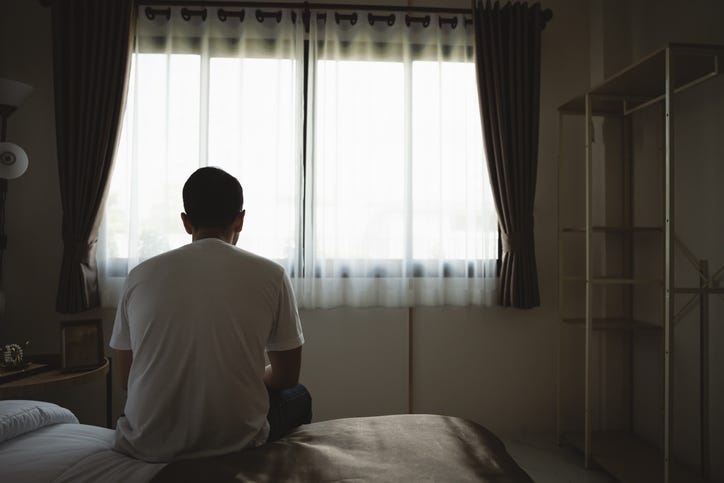
Sixty years ago, a 17-year-old who set out to win his school science fair by breaking the world record for staying awake as long as possible ended up shedding new light on how the brain works and changing our understanding of sleep itself.
"You don't need sleep. That was the thinking in the 1960s, and that was the thinking I had," Randy Gardner told NPR in 2017.
With the help of two friends to monitor changes in his physical and cognitive abilities, Gardner woke up on December 28, 1963 and didn't fall back asleep until January 8, 1964. He was awake for 264 hours -- 11 days and 25 minutes -- and he did it all without any stimulants except Coca-Cola, loud music and cold showers, according to Guinness World Records.
The first two days of the experiment were uneventful. By the third day, nausea and memory problems set in -- but Gardner persisted.
"I was really nauseous. And this went on for just about the entire rest of the experiment. And it just kept going downhill," Gardner told NPR 53 years later. "I mean, it was crazy where you couldn't remember things. It was almost like an early Alzheimer's thing brought on by lack of sleep."
Local reporters caught word of the experiment and soon, Gardner's ambitious project was making national headlines. It also caught the attention of Dr. William Dement, a sleep researcher at Stanford University who traveled to Gardner's home in San Diego to monitor the teen's health.
"I was probably the only person on the planet at the time who had actually done sleep research," Dement told BBC News. "[Randy's parents] were very worried that this might be something that would really be harmful to him. Because the question was still unresolved on whether or not if you go without sleep long enough you will die."
During the experiment, Gardner experienced lapses in memory and judgement, mood swings and a short attention span, but he excelled at physical challenges.
"Physically, I didn't have any problems," Gardner told NPR. "But the mental part is what went downhill. The longer I stayed awake, the more irritable I got."
On day 11, after breaking the world record by four hours, Gardner finally closed his eyes and was sent to a nearby naval hospital where he slept for 14 hours as doctors monitored his brain waves.
According to Guinness, "Gardner's analytical abilities, perception, motivation, memory, and motor control were all affected to varying degrees." However, Dement concluded "with absolute certainty that staying awake for 264 hours did not cause any psychiatric problems whatsoever."
Although Gardner's world record has since been broken, 264 hours remains the longest scientifically verified period without sleep, New Scientist reported. His experiment is also one of the most well-documented cases of sleep deprivation, according to NPR.
The experiment supported the existence of "microsleeps" -- when you nod off and quickly fall asleep for several seconds. According to the Sleep Foundation, microsleep occurs so quickly that someone might not even realize that they fell asleep. Although most people close their eyes, some people may appear to be awake and have their eyes open. Either way, the brain has briefly clocked out.
"Instead of recognizing that you fell asleep, you might think you briefly stopped paying attention to whatever was around you," the Sleep Foundation noted. "Regardless of how someone appears during a microsleep episode, their brain is not processing external information like usual."
Microsleep is most likely to occur after sleep deprivation and when people are performing monotonous tasks, such as driving on an empty highway. Microsleep isn't dangerous, but it does make people briefly less responsive or unresponsive to stimuli -- increasing the risk of accidents that could occur while driving, operating heavy machinery or other similar tasks.
Want to get caught up on what's happening in SoCal every weekday afternoon? Click to follow The L.A. Local wherever you get podcasts.
In 1997, Guinness stopped certifying attempts to break the record for the longest time to stay awake, citing the "inherent dangers associated with sleep deprivation." According to the National Institutes of Health, sleep deficiency can lead to physical and mental health problems, injuries, loss of productivity, and even a greater likelihood of death.
Another reason Guinness no longer monitors the record is the existence of microsleeps. The organization said it's difficult to accurately determine the true world record because there's no way of accounting for microsleeps during past record attempts. If record breakers experienced microsleeps, then the real upper limit could in fact be a lot lower.
The current record holder is Robert McDonald, who went 453 hours 40 minutes (18 days 21 hours 40 minutes) without sleep in 1986.
Follow KNX News 97.1 FM
Twitter | Facebook | Instagram | TikTok
